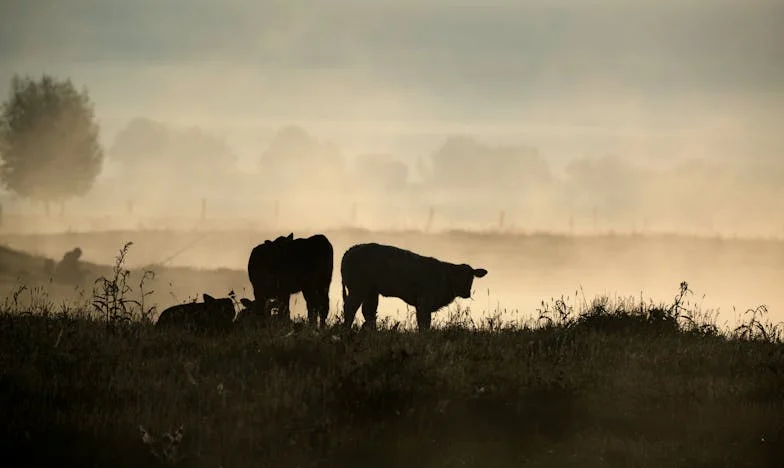Carrying the Weight: A Story of Family, Addiction, and Forgiveness in Ohio
“Mark, can you at least take the bags?” I said, my voice sharp and trembling, as the icy wind slapped my cheeks. The parking lot outside the Save-A-Lot was a patchwork of dirty snow and oil stains. Mark stood with his back to me, hunched over, flicking ash from a cigarette. He didn’t move. He just stared at the traffic, jaw tight, like I was asking him for something impossible.
“You know I can’t carry that much right now,” he muttered, barely looking at me. I could smell the smoke, bitter and familiar. My arms ached, and the grocery bags were digging deep lines into my fingers. Inside the store, people were still shuffling through the checkout, but out here, it was just us and the cold truth between siblings who barely recognized each other anymore.
I dropped the bags at his feet. “Fine. Then just stand there and do nothing, like you always do.” My voice echoed, harsher than I’d meant. Mark’s eyes met mine, flickering with something I hadn’t seen since we were kids—shame, maybe, or regret. For a moment, I wanted to reach out, to say I was sorry for snapping, but the anger was too thick.
He ground out his cigarette on the curb. “I didn’t ask to be here, Jess.”
I wanted to scream. I wanted to remind him that he’s the one who left his last apartment trashed, the one who burned through Mom’s emergency fund after her funeral, the one who promised—swore—he was clean this time. But all I did was pick up the groceries, my breath fogging in the frigid air.
We loaded the car in silence. Mark didn’t help. He slid into the passenger seat, arms crossed, eyes fixed out the window. I let my hands thaw on the steering wheel before starting the engine. I glanced at his thin frame, the hollow cheeks, the way his hands shook when he thought I wasn’t looking. I remembered the boy who used to race me down the street on rusty bikes, the one who once caught fireflies for me in mason jars.
“Are you hungry?” I asked, voice softer.
He shrugged. “Doesn’t matter.”
We drove through the gray streets, past boarded-up storefronts and fading billboards. Cleveland in February has no mercy. I thought about the rehab brochures stuffed in my glove compartment, the ones I’d picked up after his last overdose. I thought about Thanksgiving, when he’d stolen Grandma’s pills, and Christmas, when he didn’t show up at all.
At a red light, I swallowed hard. “Mark, you can’t keep doing this. You can’t just float through life, expecting everyone to pick up after you.”
He turned to me, eyes rimmed red. “What do you want from me, Jess? I’m trying. I really am.”
“Are you?”
He pressed his forehead to the window. “I just need some time. It’s not that easy.”
The words hung in the air. I gripped the wheel tighter. “You’re not the only one who lost Mom.”
He flinched. “Don’t, Jess. Please.”
But it was too late. The dam broke. I remembered finding him in the basement, unconscious, the needle still in his arm. I remembered the paramedics, the hospital, the endless questions. I remembered Dad leaving, Mom crying, and the way Mark’s addiction swallowed our family whole.
I pulled into our driveway. The house looked smaller now, windows dark, paint peeling. Mark got out first, slamming the door behind him. I carried the groceries inside, the bags heavier than ever. In the kitchen, he hovered by the fridge, fidgeting with his hoodie strings.
I couldn’t take it anymore. “You’re going to meetings, right?”
He hesitated. “Sometimes.”
I slammed a box of cereal onto the counter. “That’s not good enough. You have to show up, Mark. For yourself. For me.”
He looked at the floor. “I’m scared, Jess. I’m scared I’ll never get it right.”
Something inside me cracked. The anger faded, replaced by a tidal wave of grief. I set the groceries down and hugged him, feeling how thin he’d gotten. He shook in my arms, silent sobs racking his body. For the first time in years, Mark let himself break.
We stayed like that for a long time, surrounded by cheap groceries and broken promises. When he finally pulled away, he wiped his eyes on his sleeve.
“I’m sorry, Jess,” he whispered. “For all of it.”
I believed him. Or maybe I just wanted to. But love isn’t about keeping score.
That night, over microwave dinners, Mark told me things I’d never heard before. About how the pain started, about the darkness that never quite left. I listened. I didn’t judge. For once, we were just brother and sister, two broken people trying to find our way home.
Sometimes I wonder if forgiveness is an act or a process. If love really can conquer something as relentless as addiction. Or maybe the real question is: how do you keep loving someone when it hurts so much to hold on?
